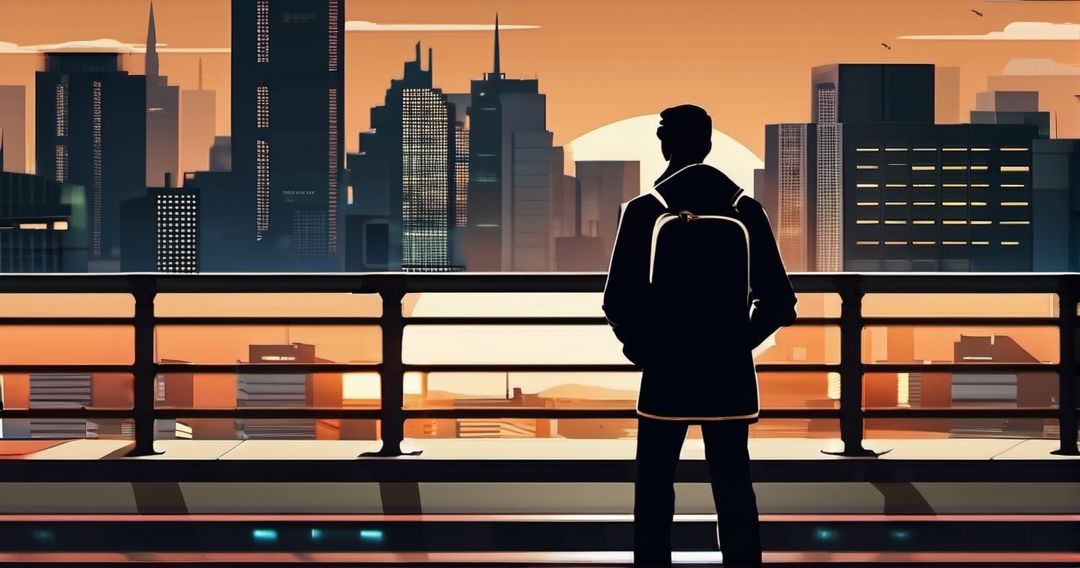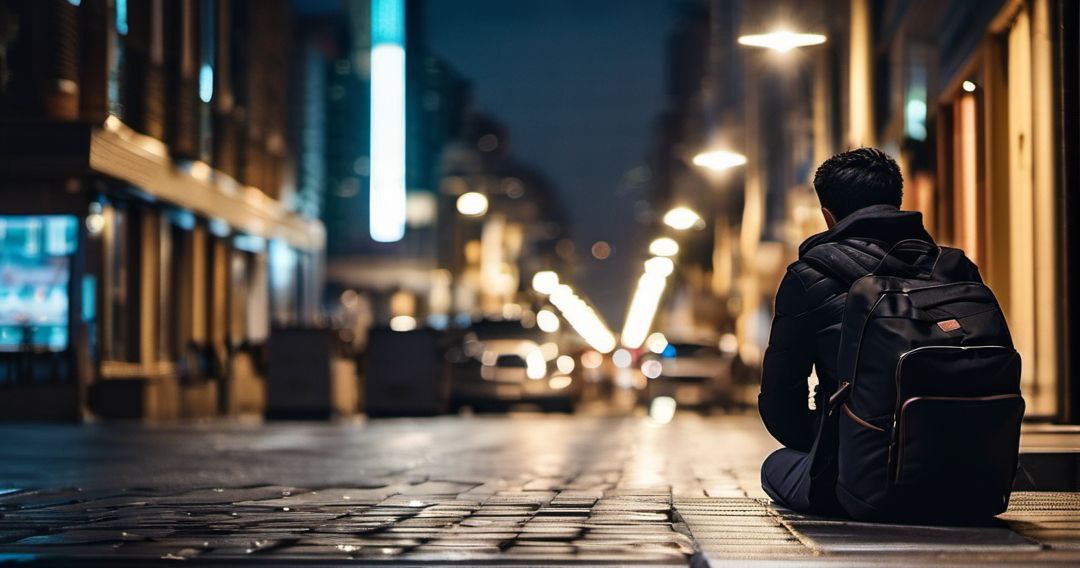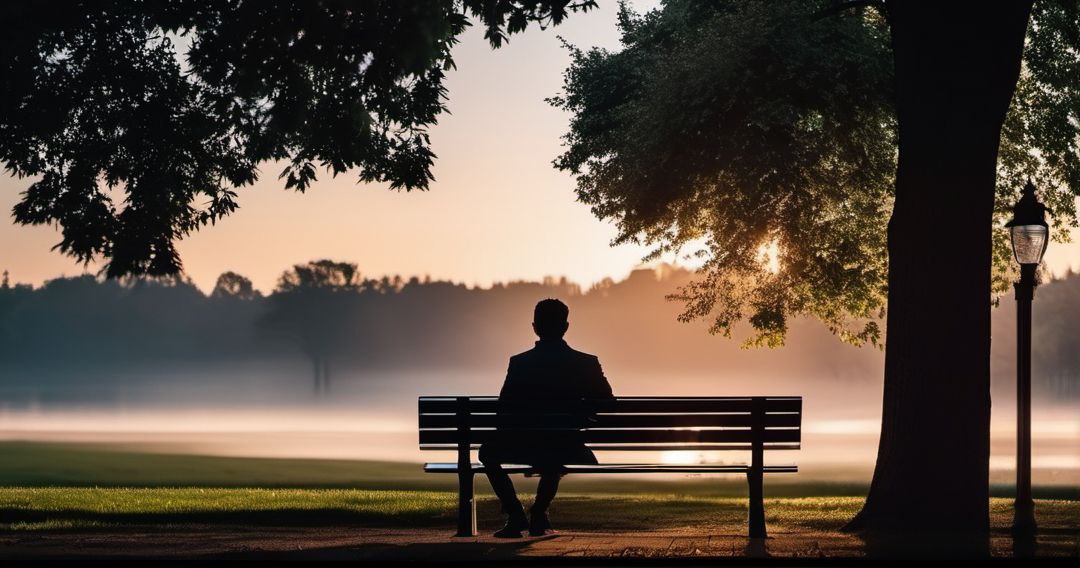A Russian Programmer's Journey: Starting Anew Amidst Struggles and Hope
Follow a Russian programmer's journey of starting life anew. Discover the emotional and instructive tale, offering valuable insights into transitioning to a new environment while pursuing a tech career.
Before
Matvey Sokolov had always been a man of precision and order. As a lead programmer for one of the most prominent tech companies in his country, he thrived on structure, deadlines, and the intricate beauty of code. His days were spent immersed in algorithms and problem-solving, guiding his team through the complex landscape of software development. The challenges were many, but they were the kind he was trained to face.
The political climate had always been a background noise, something he could tune out. His world was built on logic and reason, far removed from the chaotic unpredictability of politics. That is, until the day it wasn’t.
It started with murmurs of unrest, rumors of a brewing conflict. The government, once seen as a distant entity, began to tighten its grip. New laws were passed, dissent was silenced, and the country teetered on the brink of war. Matvey, like many others, watched in disbelief as the situation deteriorated. Protests erupted, and with them came a wave of arrests. People were taken from their homes in the dead of night, their only crime being their willingness to speak out against the impending conflict.
Matvey’s own involvement was limited to a few cautious conversations with trusted friends. He was a man of logic, after all, and speaking out seemed a dangerous and futile endeavor. But when one of his closest colleagues was arrested for a social media post, the reality hit home. Silence was no longer a safe haven; it was a complicity he could not afford.
One evening, as he sat in his small, cluttered apartment, the decision crystallized. He had to leave. It was not an easy choice. His life, his work, his identity were all rooted in this country. But the alternative was a slow, suffocating existence under an oppressive regime. He packed what little he could carry, said a tearful goodbye to his parents, and set off for the border.
The Fall
The journey was harrowing. Crossing the border meant bribing guards and navigating treacherous terrain. He arrived in a neighboring country with nothing but a backpack and a heavy heart. The bustling metropolis that greeted him was alien and unwelcoming. He was a stranger in a strange land, cut off from everything he had known.
Finding work proved to be an insurmountable challenge. Despite his skills and experience, his credentials meant little in this new environment. Weeks turned into months, and his savings dwindled. Desperation gnawed at him, a constant reminder of his precarious situation.
Matvey’s mind, once sharp and focused, began to unravel. The uncertainty, the fear, the relentless stress—it all took a toll. He spent countless nights staring at the ceiling, haunted by what he had left behind and what lay ahead. The thought of returning home was a tormenting temptation, but he knew it was not an option. The regime’s reach was long, and its retribution would be swift.
One evening, as he wandered the city streets, Matvey stumbled upon a small park. It was a modest slice of green amidst the concrete jungle, a place where he could sit and lose himself in thought. It became his sanctuary, a place to escape the oppressive weight of his reality. But even in this refuge, the darkness followed. He found himself sinking deeper into despair, questioning every decision, every step that had led him here.
The Turning Point
The turning point came unexpectedly. Matvey had always been a private man, his emotions tightly controlled. But one evening, as he sat in the park, the dam broke. Tears he had held back for months flowed freely, a cathartic release of pent-up anguish. He wept for his lost home, for the friends and family he had left behind, for the life he had been forced to abandon.
It was in this moment of vulnerability that he found a glimmer of hope. The act of crying, of allowing himself to feel the full weight of his emotions, was a revelation. It was as if a fog had lifted, revealing a path forward. He realized that he had been so focused on survival that he had neglected the most important aspect of his journey: healing.
With this newfound clarity, Matvey began to rebuild. It was a slow and arduous process, but it was a start. He sought out a local support group for refugees, finding solace in the shared experiences of others who had endured similar hardships. He reconnected with his passion for programming, volunteering his skills to help non-profits and small businesses. The work was fulfilling, a reminder of the purpose he had once found in his career.
Rebuilding
Rebuilding his life was not just about finding a job or a place to live. It was about reclaiming his identity, his sense of self. He immersed himself in the local culture, learning the language and customs. It was a way of asserting his presence, of refusing to be a mere shadow in this new world.
There were setbacks, of course. Moments of doubt and fear that threatened to pull him back into the abyss. But each time, he reminded himself of the strength he had found in his darkest hour. He allowed himself to grieve, to feel the pain, but he did not let it consume him. Instead, he used it as fuel, a driving force to push him forward.
Matvey’s journey was far from over. The scars of his past would always be there, a reminder of what he had endured. But they were also a testament to his resilience, his ability to overcome. He knew that the road ahead would be challenging, but he was no longer afraid. He had found a way to turn his pain into purpose, to build a future from the ashes of his past.
Finding Hope
As time passed, Matvey’s efforts began to bear fruit. His volunteer work led to paid opportunities, and he eventually secured a position with a tech startup. It was a small company, but it was a start, a chance to rebuild his career. His colleagues were kind and supportive, many of them immigrants themselves who understood the challenges he faced.
Matvey threw himself into his work, finding solace in the familiar rhythms of coding and problem-solving. It was a return to the order and structure he had once thrived on. But it was more than that. It was a way to contribute, to make a difference in a world that often seemed indifferent to his plight.
Outside of work, Matvey continued to build connections within the refugee community. He became a mentor to others, sharing his experiences and offering support to those who were just beginning their own journeys. It was a way to give back, to turn his struggles into something positive.
Embracing the Future
The years passed, and Matvey’s life slowly took shape. He found a modest apartment, a place he could finally call home. He made friends, built a new support network, and even began to explore the possibility of furthering his education. The wounds of the past were still there, but they were healing.
One evening, as he sat on the balcony of his apartment, watching the sun set over the city, Matvey reflected on his journey. He thought about the man he had been before, the life he had lost, and the person he had become. It was a path marked by pain and loss, but also by resilience and hope.
He realized that the true measure of a person was not in the ease of their life, but in the strength they found in adversity. He had faced unimaginable challenges, but he had not been broken. He had rebuilt his life, piece by piece, and in doing so, he had discovered a depth of strength and compassion he had never known.
Matvey’s story was one of many, a testament to the resilience of the human spirit. It was a reminder that even in the darkest of times, there is always hope. It was a message he carried with him, a beacon of light in a world that often seemed shrouded in darkness.
The Power of Rest and Self-Care
One of the most profound lessons Matvey learned on his journey was the importance of rest and self-care. In the relentless pursuit of survival and rebuilding, it was easy to neglect one’s own well-being. But Matvey discovered that taking the time to rest, to nurture himself, was not a sign of weakness but of strength.
He began to practice mindfulness and meditation, finding moments of peace amidst the chaos. He allowed himself the grace to step back when needed, to recharge and gather his strength. It was a delicate balance, but it was essential for his mental and emotional health.
Caring for himself also meant acknowledging his emotions, allowing himself to feel the full spectrum of his experiences. He learned that it was okay to cry, to feel sadness and anger. These emotions were not burdens to be suppressed but aspects of his humanity to be embraced. By giving himself permission to feel, he found a deeper sense of healing.
The Role of Community
Throughout his journey, the role of community became increasingly important. Matvey realized that he could not rebuild his life in isolation. He needed the support and connection of others. The refugee support group, his new colleagues, and the friends he made along the way all played a crucial role in his recovery.
He also discovered the power of giving back. By helping others, he found a renewed sense of purpose. Whether it was through mentoring fellow refugees or contributing to community projects, Matvey found that acts of kindness and solidarity not only helped those around him but also brought him healing and fulfillment.
A New Beginning
As Matvey settled into his new life, he began to see his journey not just as a struggle but as an opportunity for growth. He had been forced to start over, to rebuild from scratch, but in doing so, he had discovered a resilience and strength he never knew he possessed.
He continued to work in the tech industry, climbing the ranks and earning the respect of his peers. His expertise and leadership skills were recognized, and he eventually became a team leader once again. This time, his leadership was tempered with a deep
sense of empathy and understanding, qualities forged in the crucible of his experiences.
Matvey’s personal life also blossomed. He formed deep and lasting relationships, built on mutual respect and shared values. He found joy in the simple pleasures of life, moments of connection and beauty that he had once taken for granted.
Looking Forward
Matvey’s journey was a testament to the resilience of the human spirit. It was a story of loss and struggle, but also of hope and renewal. He had faced unimaginable challenges, but he had emerged stronger, more compassionate, and deeply grateful for the second chance he had been given.
He knew that the future would hold its own set of challenges, but he was no longer afraid. He had learned that even in the darkest of times, there is always a way forward. It was a lesson he carried with him, a beacon of hope for the road ahead.
As he looked out over the city, the sun dipping below the horizon, Matvey felt a sense of peace. He had come a long way from the man he had been, and he was proud of the person he had become. The journey had been difficult, but it had also been transformative. He had rebuilt his life from the ashes, and in doing so, he had discovered the true depth of his own strength.
Conclusion
Matvey’s story is a reminder of the power of resilience and hope. It is a testament to the human spirit’s capacity to endure and overcome. In the face of unimaginable adversity, Matvey found a way to rebuild his life, to turn his pain into purpose. His journey is a beacon of light, a reminder that even in the darkest of times, there is always a way forward.
In a world often marked by uncertainty and strife, Matvey’s story offers a message of hope and perseverance. It is a call to embrace our emotions, to seek support and community, and to never give up on the possibility of a brighter future. For in the end, it is not the challenges we face that define us, but the strength and courage we find within ourselves to overcome them.





Comments powered by Disqus.